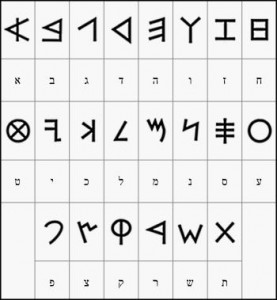Rabbah.pdf - Liquid Metal: Taming Architecture Heterogeneity 1 Rodric Rabbah IBM Research Berkeley 11/2/12 research. Com/liquidmetal Friday, November 16, 12. Download our midrash rabbah english pdf eBooks for free and learn more about midrash rabbah english pdf. These books contain exercises and tutorials to improve your practical skills, at all levels!
Online Text Library. Course Syllabi. Hebrew Text with NASB English. Tanakh (Unicode. Midrash Rabba. Yalqut Shimoni. Is it possible to translate from Hebrew into English without losing. Finished translating the Midrash Rabbah. Is available online as a free.pdf. 1 BEREISHIT RABBAH (GENESIS RABBAH) Midrash Rabbah - Genesis I:1. “In the beginning God created” Rabbi Oshaya began: “Then I was by Him, as a nursling.

This Midrash translation is part of the Soncino series of translations. About kashrus it’s hard to say anything. The Soncino group were graduates of “Jews’ College of London,” definitely not yeshivah-grade people. They kept Shabbos, but. The big problem is competence, or rather their total lack of it. They had only the most superficial knowledge of their texts, only the most rudimentary learning skills, only the vaguest notion of what Chazal were trying to teach. You certainly will not get an accurate idea of the Midrash from this work.

Drivers License Font Illinois Child here. For that matter, given the tremendous depth and subtlety of Midrash, and its close relation to Hebrew grammar and orthography (from which midrashim are derived), even I, a veteran yeshivah scholar and moreh tzedek in my town, would not agree to attempt a translation. I am a multi-lingual translator of some fifty years’ experience, most of it spent dealing with sefarim.
After all these years, my only advice to everyone is, “Learn Hebrew, no matter how hard it is for you, and never use a translation. Questions For Trivia Games. ” There is a reason the Torah was given in leshon hakodesh — the same reason the world was created with it. Learn your native language and don’t compromise. Ylavon, thank you for your answer. It’s always gratifying to read a post that presents the facts accurately.
I am nowhere near as learned as you, but even from the little I know, I can see that reading a translation of a passuk or a Rashi always misses something, even if it’s just a slight nuance. Lashon Kodesh is a very precise language; the grammatical construction of every word holds worlds of meaning. The Chachamim who wrote the Torah She’Baal Peh likewise were very selective in their choice of language. Their brief statements hold so much meaning that is often lost when attempting to translate into a different language. There are those, however, who have no choice other than using a translation.
I don’t think it would be correct to tell them to give up learning all together. There are translations that come from questionable sources that it is unwise, at times maybe even forbidden, to make use of; others written by Talmidei Chachmim can be a great help. Personally, I don’t use any Soncino translations. Finale Notepad 2002. But “personally” is not an answer to the OP. Is there someone out there, ylavon or other poster, who can offer the OP a serious answer to his question? Akuperma, I’m not sure I know what you’re talking about.
Or that you know what you’re talking about. If you multiply the sheva (7) binyanim by 3- avar, hoveh, atid, you get 21 different constructs for every verb. That’s before you mutiply each by 10 different pronouns which don’t exist in English (there’s no gender difference in English pronouns). Also, the conjugation of verbs in English, unlike Hebrew, most often does not change with change of pronoun (I think, you think, we think; he wrote, she wrote, we wrote; you will dance, we will dance, they will dance). There is also no such concept as an arbitrary “exception to the rule” in Lashon Kodesh (I swim, I swam; I think, I thought; I go, I went: I eat, I ate).